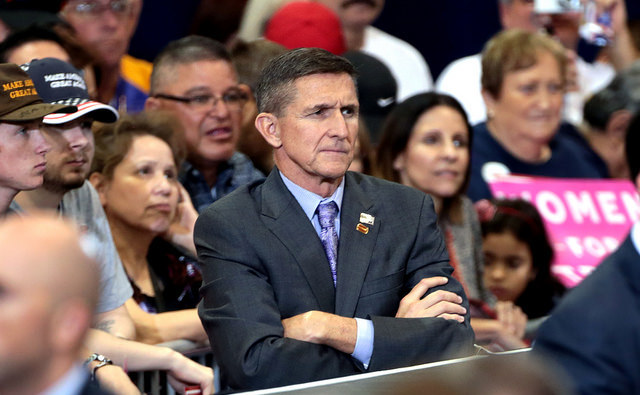The Treatment of Flynn’s Phone Calls Complies with FISA Minimization Procedures
Just a quick note to clear up any lingering uncertainty after this morning’s Wall Street Journal editorial, "Eavesdropping on Michael Flynn," which asks whether “the spooks listening to Mr.

Published by The Lawfare Institute
in Cooperation With

Just a quick note to clear up any lingering uncertainty after this morning’s Wall Street Journal editorial, "Eavesdropping on Michael Flynn," which asks whether “the spooks listening to Mr. Flynn obeyed the law?” As everyone knows, Michael Flynn resigned last night from his position as National Security Adviser in the wake of conflicting statements about what he said or didn’t say in a phone call with the Russian ambassador before President Trump’s inauguration—a call that apparently was recorded by U.S. intelligence officials.
|
If you are finding Lawfare useful in these times, please consider making a contribution to support what we do. |
The Journal’s editorial says that “U.S. intelligence services routinely get orders from the Foreign Intelligence Surveillance Court to monitor foreign officials. But under U.S. law, when they get those orders they are supposed to use ‘minimization’ procedures that don’t let them listen to the communications of Americans who may be caught in such eavesdropping. That is, they are supposed to protect the identity and speech of innocent Americans.”
It is certainly true that U.S. intelligence services can get orders from the Foreign Intelligence Surveillance Court to monitor foreign officials. The Russian ambassador, simply by virtue of his nationality and official position, is an “agent of a foreign power” under FISA and hence a valid target for wiretapping. It is publicly known and acknowledged that the U.S. government uses FISA to wiretap foreign embassies and consulates. So, the Journal may be right that Flynn was picked up on a wiretap of the Russian ambassador.
Wiretaps do indeed require minimization—but generally only to the extent “consistent with the need of the United States to obtain, produce, and disseminate foreign intelligence information.” In some cases, when an intelligence agency issues a report based on a wiretap, minimization requires the issuing agency to substitute a generic reference in place of a U.S. person’s name—e.g., “Ambassador Kislyak said that he was looking forward to watching the Grammy Awards on television and that he was hoping that [U.S. Person] would win an award.”
But a U.S. person’s name can be used when it is necessary to understand the foreign intelligence information in the report, and no serious argument can be made that Flynn’s identity was not necessary to understand the intelligence significance of his call with Ambassador Kislyak. The call is foreign intelligence information mainly because it involves Flynn.
In a related context, here is what FISA’s legislative history says about minimization rules and substitution of generic identifiers for U.S. person names when those U.S. persons are U.S. government officials (this passage is quoted in the chapter on minimization in my book on national security investigations and prosecutions):
One example [of a situation in which a U.S. person’s name could be disseminated in an intelligence report] would be the identity of a person who is the incumbent of an office of the executive branch of the U.S. Government having significant responsibility for the conduct of U.S. defense or foreign policy, such as the Secretary of State or the State Department country desk officer. The identifiers of such persons would frequently satisfy the “necessary to understand” requirement, especially when such person is referred to in the communications of foreign officials.
Flynn was not the incumbent at the time of the call, but the logic still applies. In short, this is not a close call.


_-_flickr_-_the_central_intelligence_agency_(2).jpeg?sfvrsn=c1fa09a8_5)


